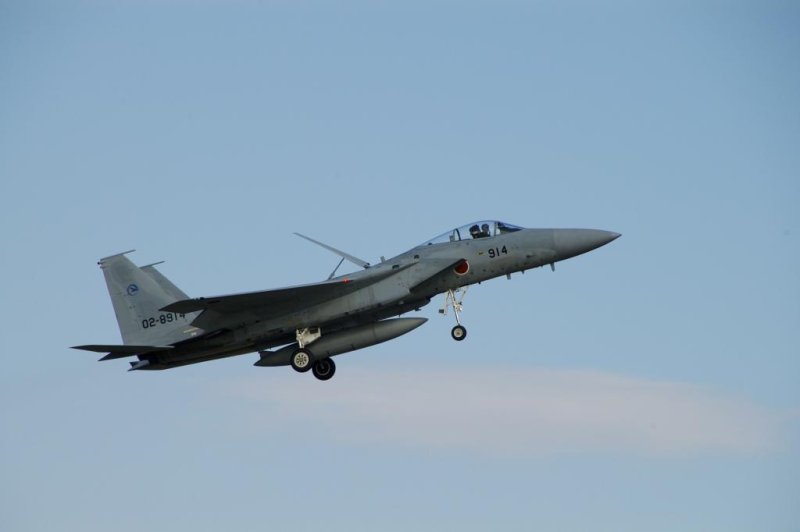As diplomatic tensions are spiraling between China and Japan, Tokyo has created a new squadron of 40 F-15 fighter jets to protect its territorial claims. Photo by Shinji/Flickr
TOKYO, Feb. 1 (UPI) -- Diplomatic tensions are spiraling between China and Japan as territorial disputes show no signs of easing, and China confirmed it has arrested a Japanese national for espionage.
Japan's Defense Ministry said it has assembled a new squadron of 40 F-15 fighter jets, the 9th Air Wing, to protect Tokyo's claims over the disputed chain of islands known as the Senkakus or the Diaoyutai Islands, the Yomiuri Shimbun reported Monday.
The squadron is the first to be established in 51 years by Japan's Air Self-Defense Force and includes 1,500 crew members.
In January, Japan had warned of stronger responses to Chinese ships sailing near the islands, and Tokyo designated waters within a 12-nautical mile radius of disputed islands as its sovereign maritime zone.
A Chinese warship reportedly sailed near the Senkaku Islands last November.
The announcement comes at a time when Japan is increasingly aligning itself with U.S. operations in the South China Sea.
Chief Cabinet Secretary Yoshihide Suga told reporters Monday Japan supports "freedom of navigation" in the South China Sea and that "ensuring a free and peaceful ocean open [to all] is extremely important for the international community," South Korean outlet Newsis reported.
Tokyo said Monday it supports the recent entry of the U.S. missile destroyer, the USS Curtis Wilbur, into waters claimed by China near Beijing's reclaimed islands in the South China Sea.
But Beijing has balked at suggestions that its island-building activities are in violation of international maritime laws.
China's Foreign Ministry spokesman Lu Kang said the U.S. destroyer's entry into waters claimed by China is the "essence of U.S. maritime hegemony" and that the United States was using the "excuse of freedom of navigation" to resolutely oppose China's maritime rights and interests.
China's diplomatic wariness of its neighbor Japan is also on the rise.
Suga told press Monday the Japanese government received an official notice from China on the arrest of a Japanese man last June on charges of espionage.
China now has in custody at least four Japanese nationals. They are all being held on similar charges.















